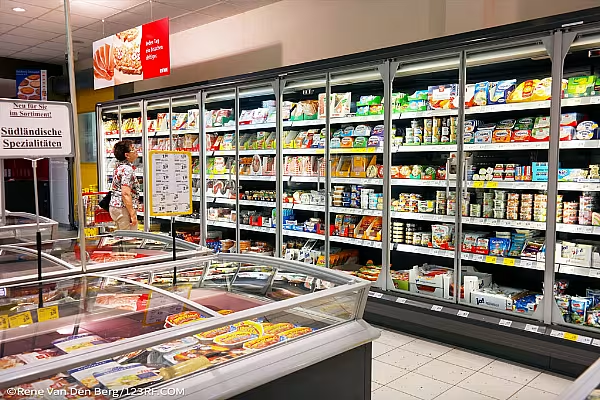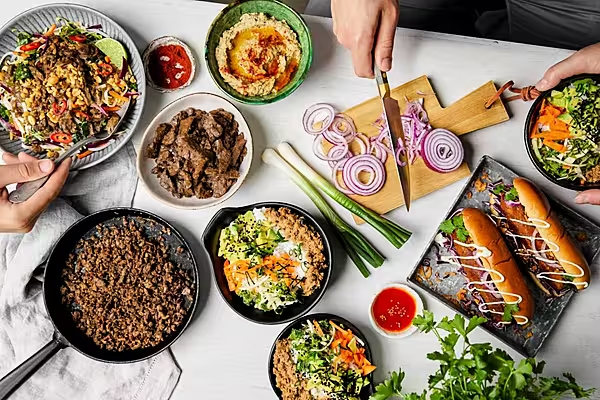COVID-19 is likely to have a lasting impact on how we buy food. Emily Newton reports.
The COVID-19 pandemic transformed how consumers shopped almost overnight. Food retailing was one of the industries most impacted by new habits and supply chain disruptions. Consumer dollars shifted from food service to retail as consumer spending on groceries grew massively, especially online delivery services.
Now, the long-term impact of the pandemic on the industry is becoming clearer.
The Rise Of Food E-Commerce
In Europe, grocery sales increased by 10% on average in 2020 compared to the year before, according to a new report from McKinsey & Co. and EuroCommerce. Much of this unusual growth was driven by online grocery purchases, with this retail channel growing by 55% the same year.
Along with a handful of other markets, like the beauty and personal care sector, food retail was one of the few European industries to see growth during the COVID-19 pandemic. That’s because consumers shifted spending to more essential products.
Numbers from the retail food industry outside of Europe and the UK look similar. In the US, consumer demand for groceries swelled by 50% in 2020, lifting same-store sales by nearly 16%. Over 90% of American retailers reported higher same-store sales for 2020, and net profit grew an average of 3%, up from 1% the year before.
It seems likely that e-commerce will remain central to food retailing. Despite the availability of vaccines and looser restrictions on in-person shopping, consumers continue to buy groceries online. The convenience of delivery and pickup may make the shift a long-lasting trend.
While the pivot to e-commerce has boosted sales for food retailers, the costs of the coronavirus and offering online services may have offset these higher sales.
The shift to online shopping may also not be entirely beneficial in the long run. Euler Hermes estimates that every percentage of grocery sales that move online may threaten €13.6 billion in sales and up to €1.9 billion in profits. Online grocery sales are made at a loss compared to in-person sales, regardless of whether the order is delivered or picked up by the customer.
How Food Retailing May Need To Manage E-commerce
The shift to online shopping will likely continue, even after the pandemic’s end — meaning food retailers will need to adopt e-commerce technology and find ways to maximise its profitability.
Businesses that want to succeed after the pandemic will need to find ways to sustainably manage further e-commerce penetration into the food retail space, utilising tech in a way that will guarantee long-term profitability.
Cybersecurity may also soon become a more important consideration for food retailers. As resources shift online, grocery stores and their business partners have become more vulnerable to disruption and attack by cybercriminals.
In July 2021, Swedish retailer Coop was forced to temporarily close all 800 of its stores after the company’s American tech provider was shut down by a ransomware attack.
Hacks like these could become more common in the future as cyberattacks rise and data becomes more valuable. Adopting modern industrial cybersecurity practices could help food retailers protect their networks and digital assets.
Shifting Consumer Preferences May Drive Deeper Changes
Other significant changes in consumer behaviour are also likely to reshape the food retail industry over the next few years.
Once again, value has become a key consideration for European consumers, according to the same report from McKinsey and EuroCommerce. Many consumers looked to cheaper private-label products and other ways to save money while grocery shopping compared to previous years.
Statistics from the American food retail industry look similar, with private brands seeing double-digit sales growth in 2020. National brands saw somewhat more modest growth.
At the same time, lifestyle agendas are also having a major impact on how consumers spend. Customers are increasingly interested in foods that are marketed as being healthier, local or more sustainable — reflecting a trend toward more environmentally conscious spending that can be seen in the broader economy.
The foodservice industry is beginning to recover slowly, with loosened lockdown restrictions and the growing availability of vaccines encouraging customers to return to restaurants. This has likely shifted food spending away from the food retail industry somewhat.
A tight global labour market is also likely to have an ongoing impact on food supply chains and prices worldwide. In the United States, major retailers and regional chains are offering major sign-on bonuses to new hires in response to labour shortages there.
It’s possible that labour, rather than sales or supply chain disruptions, will be one of the most important factors in food retail growth in the near future.
Longer-Term Impact
More than a year and a half after the pandemic began, the long-term impact that COVID-19 will likely have on food retail has become clearer. The shift to e-commerce is likely to become permanent, and retailers will need to manage the positives and negatives of the new trend.
At the same time, COVID-19 may have also accelerated certain lifestyle changes. Consumers are more interested in food that promotes itself as being healthy or sustainable. Traceability, transparency and environmentally-minded business may become essential value propositions over the next few years.
About the Author: Emily Newton is the Editor-in-Chief of Revolutionized Magazine. She has over three years experience writing for the food and beverage industry.
© 2021 European Supermarket Magazine. For more Retail news, click here. Article by Emily Newton. Click subscribe to sign up to ESM: The European Supermarket Magazine














